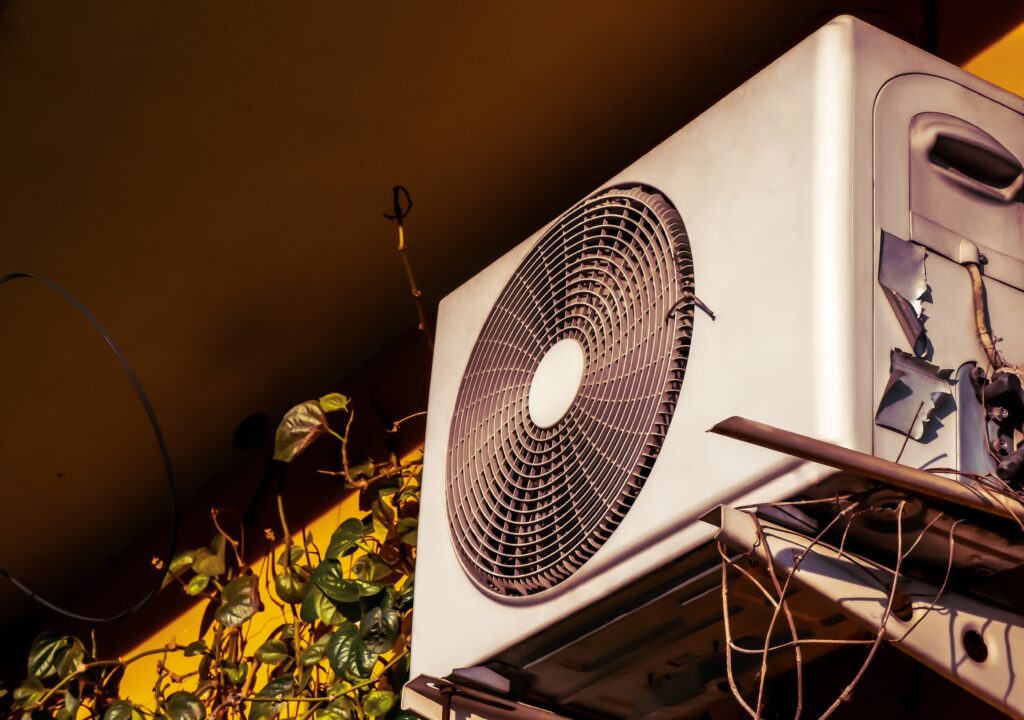Understanding the Role of Your HVAC System
Your HVAC (Heating, Ventilation, and Air Conditioning) system is crucial for maintaining a comfortable indoor environment. Not only does it regulate temperature, but it also ensures adequate air quality and ventilation. Understanding its role can help homeowners recognize when something is amiss.
HVAC systems work by heating or cooling air and circulating it throughout the home. In winter, the heating element warms the air, while in summer, an air conditioning unit cools it down. Besides temperature control, an efficient HVAC system also filters dust, allergens, and other pollutants from indoor air, promoting good health. The importance of this filtration process cannot be overstated, especially for households with members who suffer from respiratory issues or allergies. A clean and well-functioning HVAC system can significantly reduce the presence of harmful particles in the air, creating a healthier living space.
The Importance of Regular HVAC Maintenance
Regular maintenance of your HVAC system is vital to prevent major breakdowns and extend the unit’s lifespan. A proactive approach to maintenance can lead to improved performance, enhanced energy efficiency, and minimized repair costs over time. Homeowners should schedule professional inspections at least once a year to ensure all components are functioning optimally. Additionally, seasonal maintenance can be beneficial, as it prepares the system for the demands of the upcoming weather changes, whether it be the heat of summer or the chill of winter.
During routine maintenance, technicians check refrigerant levels, inspect ductwork for leaks, and clean essential components like filters and coils. This not only enhances performance but also reduces energy consumption, as a well-maintained system uses less power to operate. Moreover, regular maintenance can help identify potential issues before they escalate into costly repairs, allowing homeowners to budget for any necessary work without the stress of unexpected breakdowns.
How HVAC Systems Work
To fully understand when to call for help, it’s essential to know how HVAC systems operate. The system takes in air from inside the home, warms or cools it as needed, and then distributes it back through a network of ducts. The thermostat plays a crucial role in this process as it senses the temperature and signals the HVAC unit to adjust accordingly. This feedback loop is vital for maintaining a consistent and comfortable indoor climate, ensuring that the temperature remains stable despite fluctuations in outdoor conditions.
In addition to cooling and heating, many systems include ventilation components that help to circulate fresh air into the home. This is critical for maintaining good air quality, as it prevents the buildup of stale air and allergens. Some modern HVAC systems even incorporate advanced filtration technologies, such as HEPA filters, which can capture even the smallest particles, including pet dander and mold spores. Furthermore, many systems now offer smart technology options that allow homeowners to monitor and control their HVAC systems remotely, providing convenience and the ability to optimize energy use even when they are away from home.
Common HVAC Problems and Their Symptoms
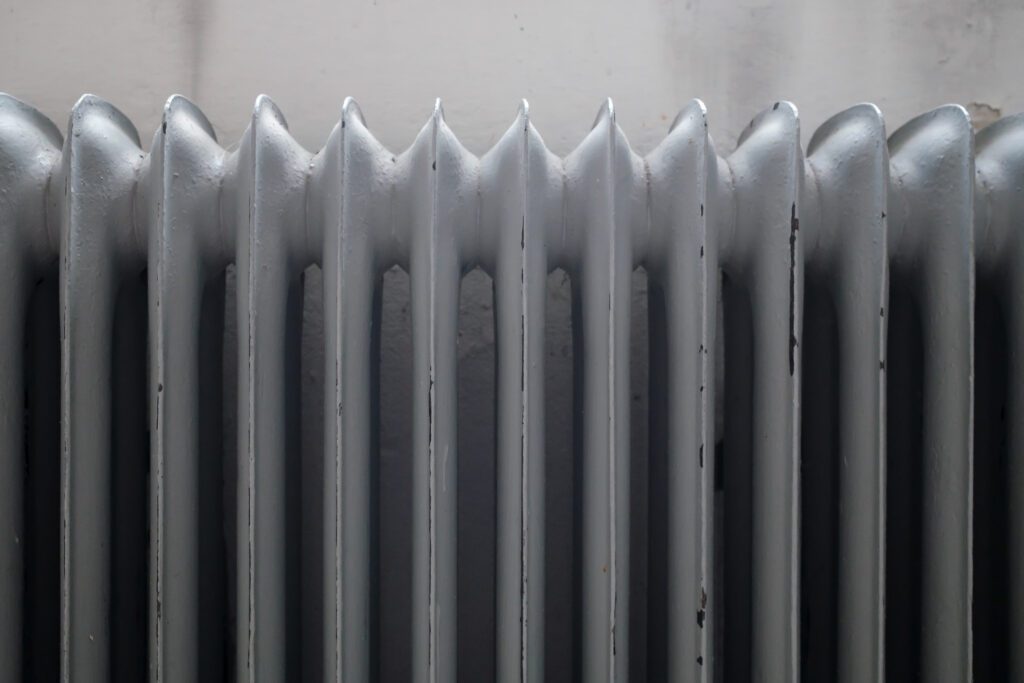
Identifying common HVAC problems and their symptoms can save homeowners from more significant issues down the line. By being aware of these signs, you can act quickly and contact a repair professional when necessary.
Unusual Noises from Your HVAC System
Listening to your HVAC system is essential. If you hear unusual noises like banging, clanking, or grinding, it could indicate a serious issue. These sounds are often the result of loose or broken parts, and ignoring them can lead to costly repairs.
For instance, a screeching noise could imply a failing motor, while a hissing sound might indicate a refrigerant leak. Knowing these noises can help you diagnose issues early and seek professional help promptly. Additionally, a rattling noise could suggest that debris has entered the system or that components are misaligned, which can further exacerbate the problem if not addressed. Regular inspections can help catch these issues before they escalate, ensuring your HVAC system operates smoothly and efficiently.
Inconsistent Temperatures Throughout Your Home
Inconsistent heating or cooling can indicate problems within the HVAC system. If some rooms are too hot while others are too cold, it may be a sign of ductwork issues or problems with the thermostat. Over time, this inconsistency can lead to discomfort and increased energy bills as the system works harder to maintain an even temperature.
In more severe cases, this could mean that the HVAC system is failing to distribute air properly or that it is reaching the end of its lifespan. Addressing these symptoms early is crucial for maintaining a comfortable home environment. Furthermore, factors such as poor insulation or blocked vents can also contribute to temperature discrepancies, so it’s important to evaluate the entire system holistically. Regular maintenance checks can help identify these issues, ensuring that your home remains a comfortable haven regardless of the season.
High Energy Bills
Sudden spikes in your energy bills can be a telltale sign that your HVAC system is not functioning efficiently. When systems are not well-maintained or are beginning to fail, they draw more power to operate. Regular maintenance can often resolve these issues and restore energy efficiency.
If maintenance does not solve the energy consumption issue, it may be time to consider replacing older units or components. Upgrading to energy-efficient models can significantly reduce your energy expenses in the long run. Additionally, implementing smart thermostats and zoning systems can help optimize energy use by allowing for more precise control over heating and cooling in different areas of your home. This not only enhances comfort but can also lead to substantial savings over time, making it a worthwhile investment for any homeowner looking to improve their HVAC system’s performance.
When to Call an HVAC Repair Professional
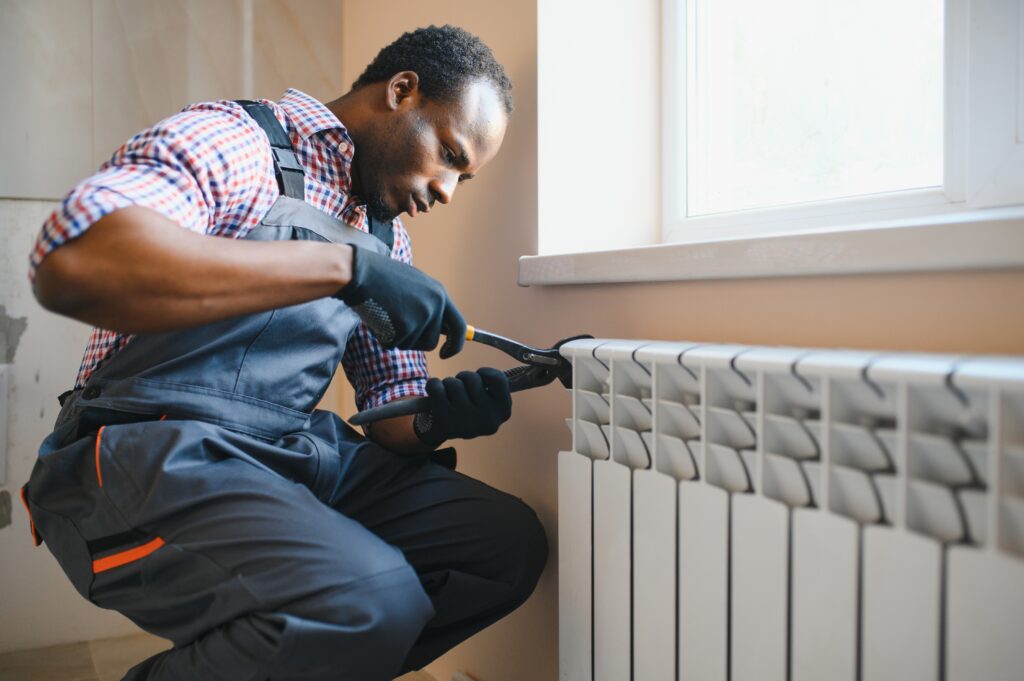
Knowing when to contact an HVAC repair professional is essential to ensuring your system remains in good working condition. Some indicators signal that immediate professional attention may be needed to avoid further damage to the system.
Persistent HVAC Issues
If you find yourself consistently having problems with your HVAC system—such as recurring breakdowns or ongoing performance issues—it’s a clear sign that you need to call in a professional. Ignoring recurring problems can lead to more extensive damage and costly repairs, making timely intervention critical.
Experienced technicians can diagnose underlying issues that may not be immediately apparent and provide effective solutions. They often help in targeted repairs that home remedies may overlook. For instance, a technician might identify that a dirty air filter is causing airflow restrictions, or that a failing capacitor is leading to frequent system shutdowns. Addressing these issues promptly can enhance efficiency and comfort levels in your home.
HVAC System Breakdowns
When your system breaks down completely, it demands immediate attention. This includes symptoms such as the HVAC unit not turning on, strange smells emanating from the unit, and noticeable leaks. A complete breakdown not only disrupts your comfort but can also lead to further physical damage to your home or system.
In case of emergencies, many repair professionals offer 24/7 services, ensuring that you can get help when you need it the most. Keeping their contact information handy can save time and stress in unfortunate situations. Additionally, understanding the common causes of breakdowns, such as electrical issues or refrigerant leaks, can help you communicate effectively with the technician, ensuring a quicker diagnosis and resolution.
Preemptive HVAC Maintenance
Even if issues seem minor, seeking preemptive maintenance can be extremely beneficial. If your HVAC system has not been serviced in a while, scheduling an inspection can help catch issues before they escalate into major problems.
By being proactive about maintenance, you can prolong the lifespan of your HVAC system and save money on potential repairs. Engaging a qualified professional for preemptive check-ups can ensure peak performance year-round. Regular maintenance often includes tasks such as cleaning coils, checking refrigerant levels, and inspecting ductwork for leaks, all of which contribute to improved efficiency and lower energy bills. Furthermore, many HVAC companies offer maintenance plans that include regular inspections, providing peace of mind and ensuring that your system runs smoothly throughout the seasons.
Choosing the Right HVAC Repair Professional
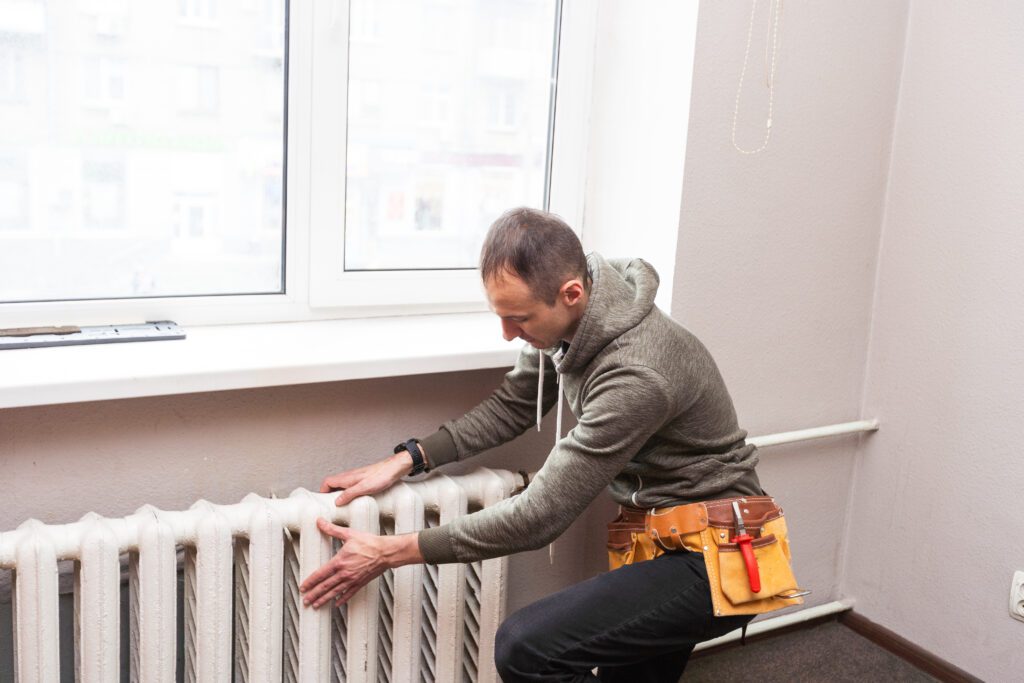
Once you recognize the need for professional assistance, the next step is to find the right HVAC repair professional to address your concerns effectively. This decision can have long-term implications for the efficiency and durability of your system.
What to Look for in an HVAC Repair Service
When selecting an HVAC repair service, consider factors such as experience, licensing, insurance, and customer reviews. A reputable HVAC technician will have the necessary credentials, which demonstrates their proficiency and reliability.
Additionally, look for services that offer comprehensive warranties. This not only shows confidence in their work but also ensures your investment is protected in case of future issues. A warranty can cover parts and labor, giving you peace of mind that any unforeseen complications will be addressed without incurring additional costs.
Furthermore, it’s beneficial to check if the HVAC service provides maintenance plans. Regular maintenance can extend the lifespan of your system and enhance its efficiency, ultimately saving you money on energy bills. A company that offers ongoing support and maintenance demonstrates their commitment to customer care and the longevity of your HVAC system.
Questions to Ask Your HVAC Repair Professional
Before finalizing a repair professional, don’t hesitate to ask questions. Inquire about their experience with your specific HVAC model, the steps involved in repairs, and estimated timeframes for completion. Clarifying the costs upfront with a detailed estimate can help avoid surprise expenses later.
It’s also wise to understand the level of customer service they provide. A responsive company that prioritizes customer satisfaction will often deliver a better overall experience. Consider asking about their availability for emergency repairs, as HVAC issues can arise unexpectedly, and having a technician who can respond quickly is invaluable. Additionally, inquire about their approach to troubleshooting and problem-solving; a technician who can explain their process in layman’s terms can help you feel more confident in their expertise.
Lastly, don’t overlook the importance of communication. A professional who takes the time to listen to your concerns and explains the repair process clearly will not only build trust but also ensure you are well-informed about the work being done. This transparency can make a significant difference in your overall satisfaction with the service provided.
The Consequences of Ignoring HVAC Problems
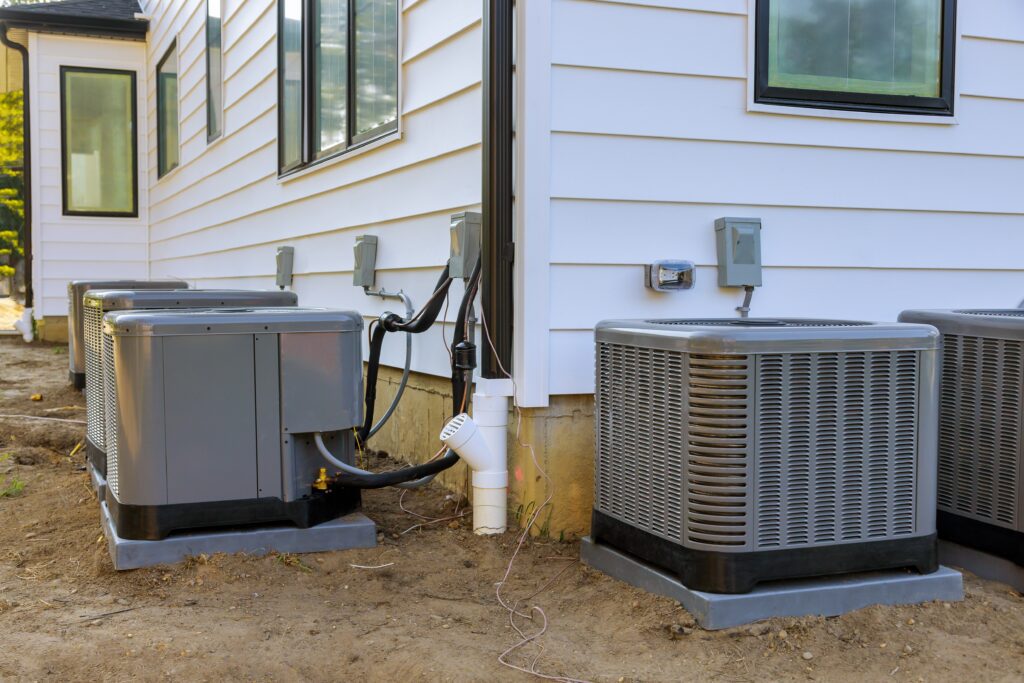
Ignoring HVAC problems can lead to unfortunate consequences that extend beyond mere discomfort. Understanding these risks can motivate homeowners to act promptly when issues arise.
Health Risks Associated with Poor HVAC Maintenance
Neglecting HVAC maintenance can contribute to poor indoor air quality, which can lead to various health issues, including respiratory problems, allergies, and other chronic conditions. Dust, mold, and mildew can accumulate in poorly maintained systems, exacerbating these health risks.
Regular cleaning and filter changes can significantly reduce these harmful particles, ensuring a safer living environment for you and your family. Furthermore, stagnant air can foster the growth of bacteria and viruses, increasing the likelihood of illnesses spreading within the home. Families with children, the elderly, or individuals with pre-existing health conditions are particularly vulnerable to these risks, making it even more crucial to maintain a clean and efficient HVAC system.
The Financial Impact of Neglected HVAC Repairs
Financially, ignoring HVAC problems can lead to more substantial costs over time. Small issues can escalate into major repairs, and an inefficient system increases energy bills significantly. In contrast, investing in timely repairs and regular maintenance can save money and extend the life of your unit.
Moreover, are you prepared for the cost of a complete replacement? Maintaining your HVAC system can help defer these major expenditures for as long as possible. Additionally, many utility companies offer rebates or incentives for homeowners who invest in energy-efficient upgrades or regular maintenance, further offsetting costs. By ignoring these issues, you not only risk higher bills but also miss out on potential savings and benefits that come with a well-maintained system.
The Effect on Your HVAC System’s Lifespan
Finally, neglecting HVAC problems can shorten your system’s overall lifespan. Systems that are not well-maintained often wear out faster and may need premature replacement. By scheduling timely maintenance and repairs, you can extend your system’s life and enhance performance.
In addition to prolonging the lifespan of your HVAC unit, regular maintenance can also improve its efficiency, leading to better temperature control and comfort in your home. A well-maintained system operates more smoothly, reducing the strain on its components and minimizing the risk of unexpected breakdowns. This proactive approach not only enhances your comfort but also contributes to a more sustainable household by reducing energy consumption and lowering your carbon footprint.
In summary, being proactive about your HVAC system is vital for ensuring comfort and efficiency in your home. Recognizing signs that indicate the need for professional help can save you from long-term inconveniences and expenses.

